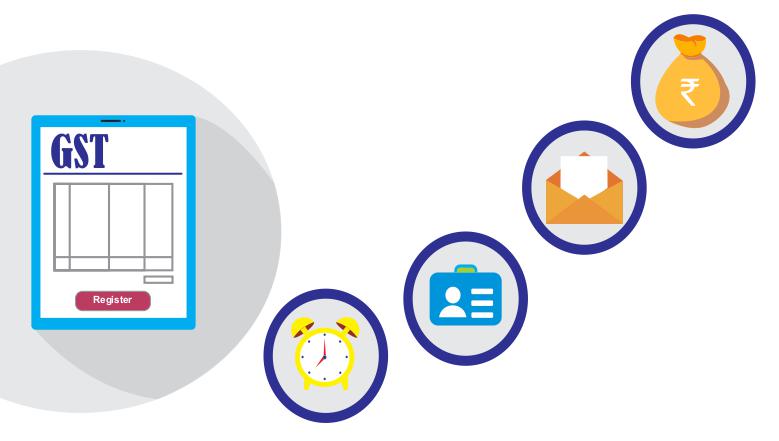
GST Input Tax Credit
Introduction
The Goods and Services Tax (GST) regime in India introduced the concept of Input Tax Credit (ITC) to eliminate the cascading effect of taxes, making it a pivotal aspect of the tax system. Input Tax Credit allows businesses to deduct the tax they have paid on purchases from the tax they owe on sales. CorpIQ specializes in assisting businesses to accurately claim their ITC, ensuring maximized tax efficiency and compliance with GST laws.
Understanding the Significance of ITC
ITC forms the core of the GST structure, allowing businesses to reduce their tax liability by claiming credit for the tax paid on inputs. It is a mechanism that not only ensures tax neutrality but also encourages tax compliance across the supply chain.
DOCUMENTS AND INFORMATION REQUIRED FOR CLAIMING ITC
Essential Preparation for an Accurate ITC Claim
Proper documentation and accurate record-keeping are essential for a successful ITC claim. CorpIQ assists in compiling and reviewing all necessary documents to ensure a seamless ITC claim process.
Key Documents Required
1. GST-compliant Purchase Invoices: Invoices from suppliers showing the GST paid.
2. Debit Notes: If applicable, for any adjustments against the original invoices.
3. Import Documents: Bills of entry or other documents evidencing the payment of IGST on imports.
4. Bank Statements: To corroborate the payment details against the purchase invoices.
CorpIQ's Expertise in Document Management
Our role is to meticulously verify that all documents are in compliance with GST norms, ensuring that your ITC claims are legitimate and substantiated.
PROCEDURE FOR CLAIMING GST INPUT TAX CREDIT
A Step-by-Step Approach to Maximizing ITC Benefits
Claiming ITC under GST involves a detailed process, which CorpIQ simplifies for businesses through its expert guidance.
Step-by-Step Guide to ITC Claim
1. Verification of Eligibility: Ensuring that the purchases are eligible for ITC and are used for business purposes.
2. Reconciliation of Invoices: Matching purchase invoices with the GST returns filed by the suppliers to ensure accuracy.
3. Filing of GST Returns: Claiming ITC while filing GST returns, primarily through GSTR-3B and GSTR-2A/2B.
4. Maintaining Records: Keeping a meticulous record of invoices and claims for audit purposes.
CorpIQ's Role in ITC Claims
We guide businesses through each step, ensuring that the ITC claims are accurately reflected in the GST returns and are fully compliant with GST regulations.
KEY FEATURES OF GST INPUT TAX CREDIT
Understanding the Nuances of ITC in GST
The ITC mechanism under GST has several key features and conditions that businesses must understand to maximize their tax benefits.
Notable Features
1. Eligibility Criteria: ITC is available only on goods and services used for business purposes and is subject to specific restrictions and conditions.
2. Time-bound Claim: There is a time limit for claiming ITC, typically till the filing of the September return of the next financial year.
3. Invoices Matching: ITC claims must match the invoices uploaded by the suppliers in their GSTR-1, reflected in the recipient's GSTR-2A/2B.
4. Reversal of ITC: In certain cases, such as non-payment to suppliers within 180 days, ITC needs to be reversed.
CorpIQ ensures that businesses are well-informed about these features and comply with all conditions for a legitimate ITC claim.
BENEFITS OF EFFECTIVE ITC MANAGEMENT
Leveraging ITC for Enhanced Tax Efficiency
Effective management and claiming of ITC offer several advantages, ensuring that businesses optimize their tax liabilities.
Key Benefits
1. Reduced Tax Liability: ITC directly reduces the GST liability on sales, lowering the overall tax burden.
2. Improved Cash Flow: Effective ITC management results in better cash flow for businesses.
3. Enhanced Compliance: Accurate ITC claims reflect a business's commitment to compliance, reducing the risk of audits and penalties.
4. Competitive Pricing: Reduced tax costs can translate into competitive pricing for goods and services.
COMMON CHALLENGES IN ITC CLAIMS
Addressing Complexities in ITC Management
Claiming ITC under GST can be challenging, with various compliance hurdles and complexities.
Common Challenges
1. Invoice Reconciliation: Ensuring that all purchase invoices are accurately reflected in the supplier's returns.
2. Determining Eligibility: Identifying eligible and ineligible inputs for ITC.
3. Managing Reversals: Handling situations where ITC needs to be reversed, such as in cases of goods returned or payments delayed.
4. Staying Updated with Regulations: Keeping abreast of the latest GST regulations and amendments affecting ITC.
CorpIQ's expertise helps businesses navigate these challenges, ensuring accurate and compliant ITC claims.




